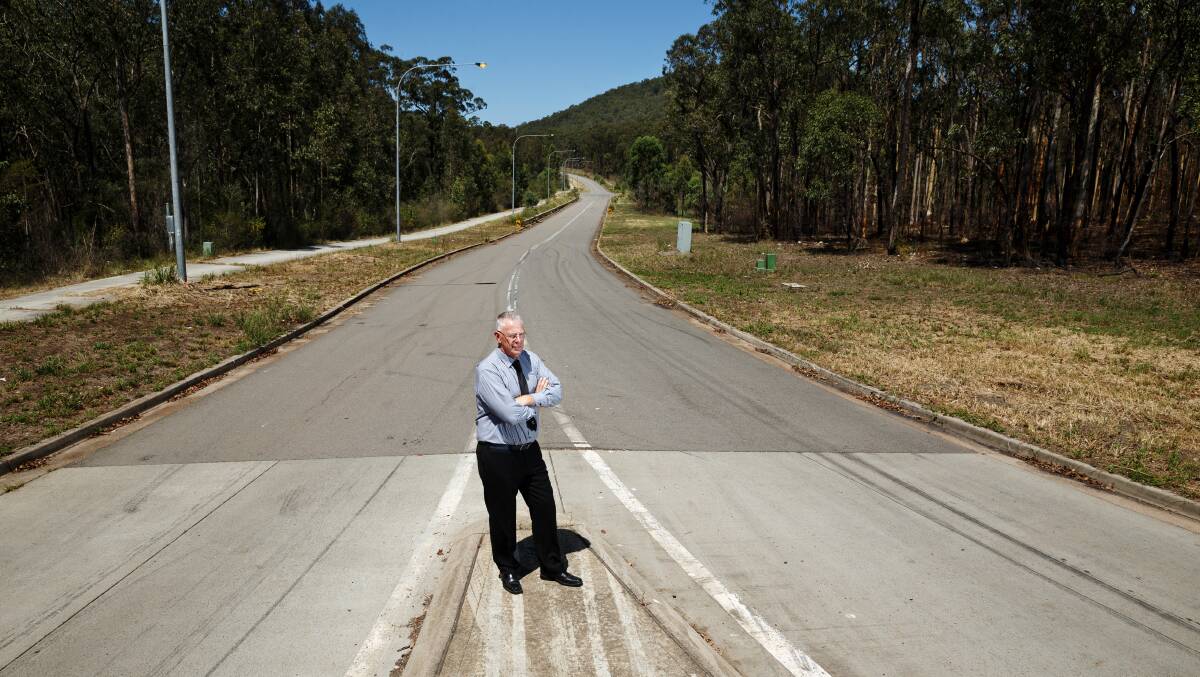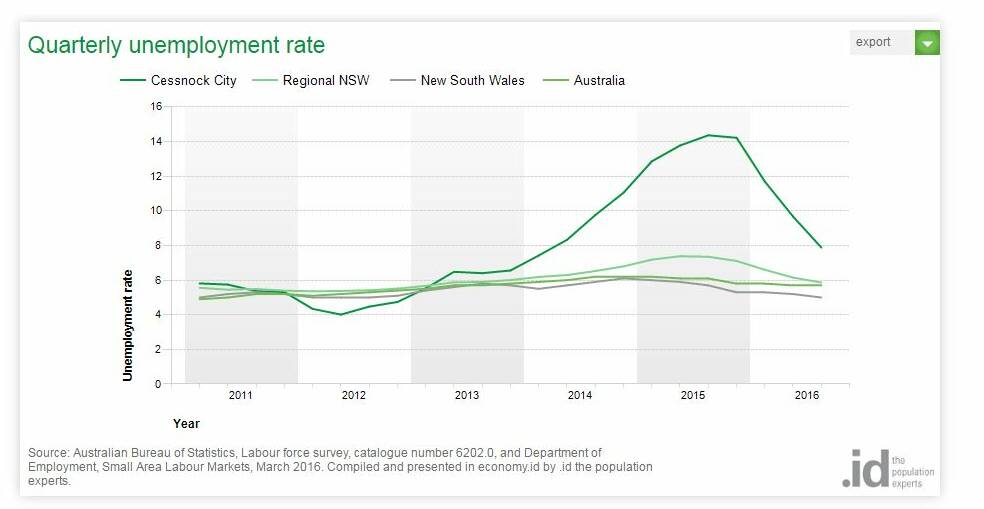
It was a master plan to save the Lower Hunter’s working class from economic collapse as mines and heavy industry abandoned the region. But, 20 years after Hunter Economic Zone was first proposed, storefronts in Kurri Kurri stand vacant, unemployment is high and the 850 hectare economic zone is empty.
Subscribe now for unlimited access.
$0/
(min cost $0)
or signup to continue reading
“It’s so frustrating,” Cessnock Mayor Bob Pynsent said. “There are about 25 shops in Kurri empty right now as a direct result of the lack of jobs. It’s an opportunity missed.”
Depending on who you talk to, the Hunter’s “road to nowhere” is a monumental failure or resounding success – but both agree the linchpin took the form of a tiny, yellow, native bird. Today tire marks blacken the roads and burned tires litter the HEZ’s empty streets.
The project was supposed to provide thousands of jobs to miners and heavy industry workers reeling from the mining downturn and loss of BHP Steelworks in the late 1990s. Cr Pynsent put the derailment of the $100m project down to a “conspiracy” by Green political groups.
“It all comes down to the Regent Honeyeater,” he said, referring to a critically endangered species that inhabits the bushland.
Former Greens councillor James Ryan told Fairfax Media there were more complex factors behind the HEZ. He said it was badly positioned – far from a main highway, bushfire prone and on top of mine subsidence.
“It’s a fabulous or tragic case study of how not to plan,” Mr Ryan said. “The road to nowhere was done with a build-it-and-they-will-come mentality, but it went broke and sold for [$5.5million].”
Council plans to approve a development in the HEZ were over-ruled by the Land and Environment Court last year citing threats to the honeyeater. Cr Pynsent said it was the nail in the coffin. Since the HEZ was first proposed, the region has endured another mining boom and downturn. Cessnock’s unemployment is at 7.89 per cent – the state average is 5 per cent. Cr Pynsent said the community is no better off.

“The community morale is low. We have all those social issues now,” Cr Pynsent said. “If this hadn’t happened we’d be living in a far different commercial and residential community.”

